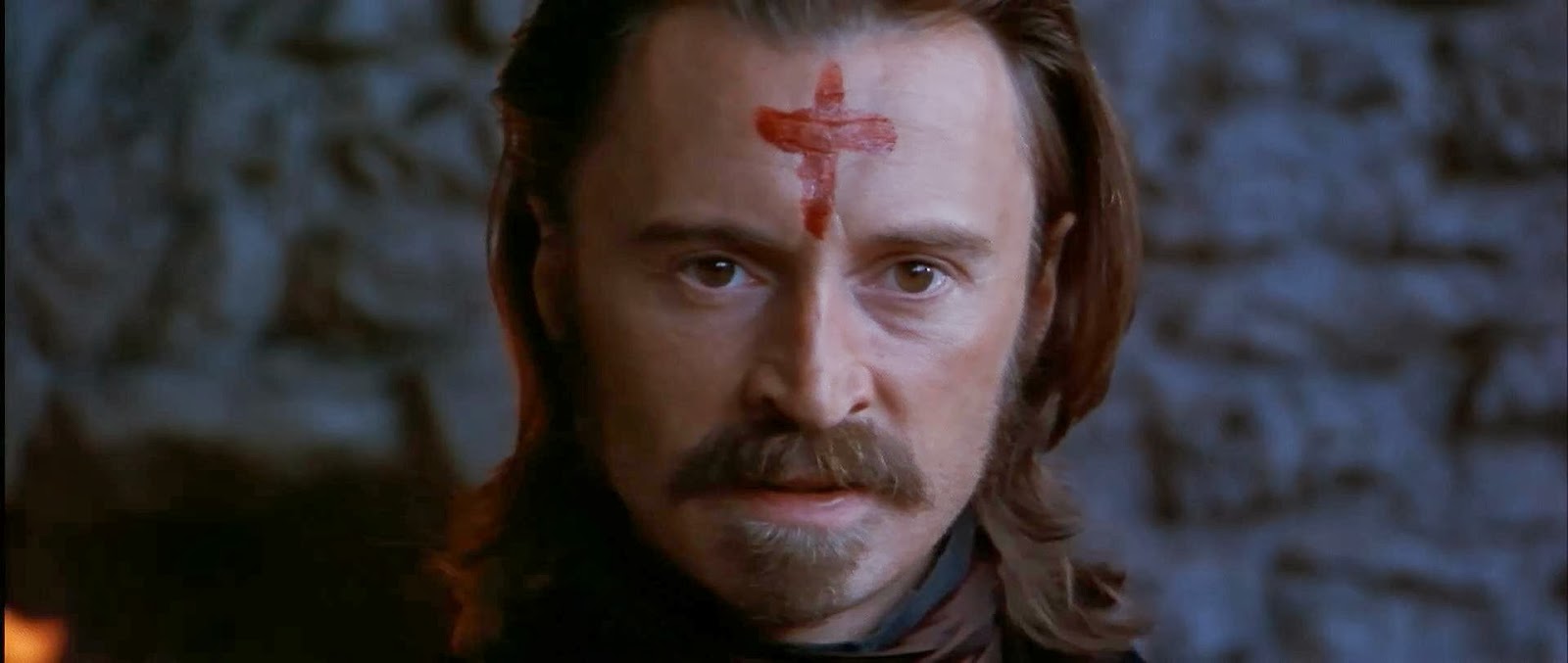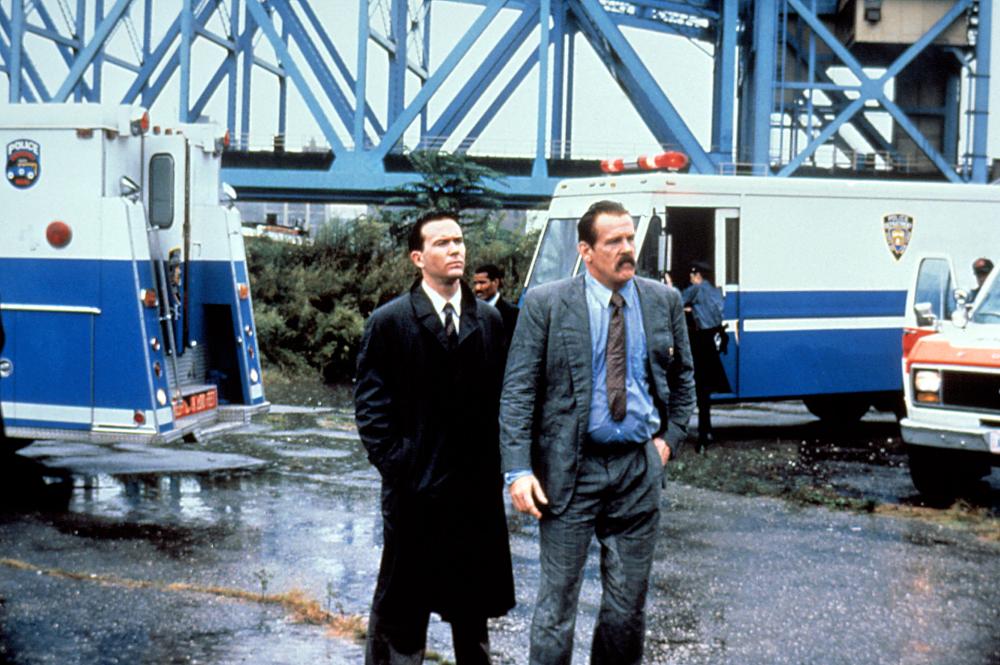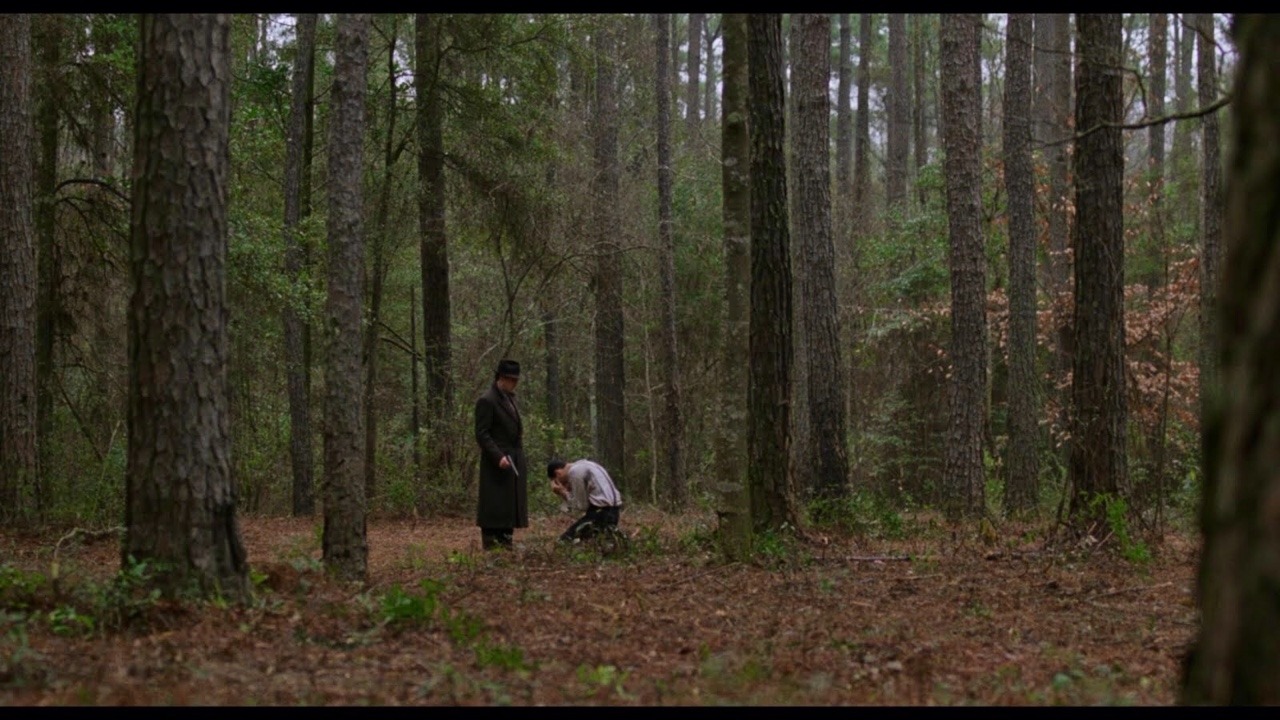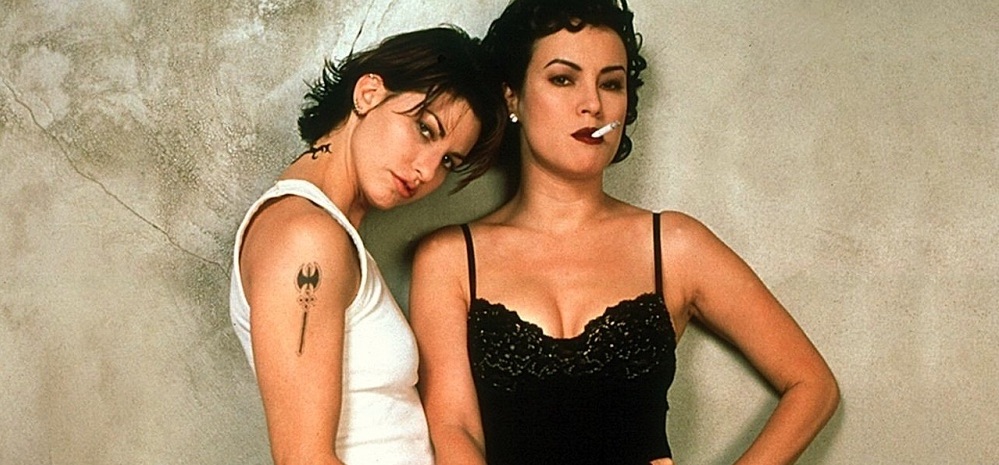Every year certain movies do not get detected by the radar, and end up being overlooked by most audiences despite their strong critical reception. This includes the likes of ‘Blue Ruin,’ ‘Killing Them Softly,’ and ‘I Saw The Devil,’ which were released this decade but only became popular worldwide after rave reviews on Underrated Lists or cult movie sites. Though the 90s can be considered the first decade after the Hitchcock era that had a massive elevation in the quality of thrillers, there are still a lot of them that went underappreciated. These films were either affected by bad marketing or release dates or similar movies that came around the same time. Shockingly, the list contains big names like The Coens, Raimi, Lynch, and Lumet. These films may not be the greatest from their respective subgenre, but they have developed in such a way that their influence is felt in most thrillers nowadays. Now, I will not be dissecting most of them or sharing my opinions since they are overlooked, and a considerable amount of the audience wouldn’t have watched them. Here is the list of overlooked thrillers from the 90s:
10. Ravenous (1999)

Imagine good ol’ Begbie had all the freedom in the world to do whatever he wanted to, with no police around to arrest him while he’s messing around with a “replica.” Robert Carlyle is not a name you come across quite often, but the man, despite his lean framework, is like a Molotov cocktail. You fill him up to the brim, and there’s nobody as explosive as him on screen. He sports a similar charm but lets his jaws do the talking in this cannibalistic thriller. The movie is based on a native Indian myth and is not really for people who appreciate logical reasoning in thrillers. Though not a typical slasher, it does have the structure and motives of one and can be considered something along the lines of Wes Craven’s ‘Scream.’ With its marvelous soundtrack and icy Nevadas setting, it’s very effective at providing the chills.
9. Q&A (1990)

Sidney Lumet was probably the greatest example of how to construct a great movie with a conventional linear narrative. But, Lumet’s story, no matter how linear, was always multi-faceted in its implications. Lumet could quite possibly explore every emotion and its consequence within 2 hours and, in the process, sacrifice not even a single character. This was one of Lumet’s boldest movies in years, and a very layered one that is a police thriller on the surface, and one of the dirtiest explorations of these protectors’ worlds, exceeding his earlier film ‘Serpico’ in this aspect.
8. Bound (1996)
The Wachowski Brothers are known for their game-changing Matrix Trilogy. What many aren’t aware of , is their directorial debut, a neo-noir thriller with a lesbian duo as the lead. It’s a genre film, and like most thrillers from the 90’s follows a similar premise of robbery which turns into an absolute clusterf*ck. What differentiates ‘Bound’ from the others is its slick style, something Wachowskis are famous for now. The action sequences are not all over the place like in ‘Matrix,’ and the two lust for each other but not love. knowing how much neo-noir dwells on instability, this detail always keeps you puzzled over the final outcome.
7. Twin Peaks: Fire Walk With Me (1992)
‘Twin Peaks : Fire Walk With Me’ was one of the most hated films at the Cannes Film Festival in 1992. The film was probably the worst Lynchian film in terms of critical reception. One of the biggest reasons could be its endless production problems, with rifts between series creators Mark Frost and David Lynch, and disappointment among the actors themselves. Another reason would be the standard Lynch had set for himself after ‘Blue Velvet’ and the TV series. It is probably Lynch’s bleakest vision, and in my opinion, though not as great, it is Lynch’s ‘A Clockwork Orange.’
6. State of Grace (1990)
It was 1990, and Sean Penn and Gary Oldman aimed to make a big statement in Hollywood. Oldman had done a terrific job as Sid Vicious and was exploring non-British characters, and his on-screen diversity since then has never been contested in Hollywood. Penn, too, was hyped up after his break-out performance alongside Christopher Walken in ‘At Close Range’. There were two crime thrillers released that week in 1990, and Scorsese’s ‘Goodfellas’ completely overshadowed ‘State of Grace’, and the latter’s quality has got nothing to do with this. It’s very character-oriented, and to an extent, Penn plays himself, entering a big world while being torn apart between his decisions and the people he cares about. Oldman slips effortlessly into his character’s boots and turns a not-so-well-written role into a remarkable one.
5. Heaven (1998)

‘Heaven’ is an underrated little gem from New Zealand and features a then relatively unpopular Martin Donovan and Karl Urban. It’s probably as strange on reel, as it is on paper. Though having 90’s tropes with lots of characters and a messy plot, it probably has the most interesting plot devices. The movie revolves around a transgender person who has visions of the future, and to make things even more complicated, ‘Heaven’ has a non-linear narrative that would put Pulp Fiction to shame any day, over its complexity.
4. Nikita (1990)

“Critics should be looking towards the future, but in France, all they want to talk about is the past.” – Luc Besson. Nikita probably did not start the French New Wave or Cinema du look (which it was a part of), it surely presented a gateway for other upcoming French directors to induce tropes from Hollywood while retaining the style Europe was famous for. Nikita is one of the earliest films to feature a female assassin, and the remakes and TV shows are proof of the impact it had on elevating the status of the “femme fatale.” Its depiction of violence is what you would usually find in a Tarantino film, not to disturb but to stir your adrenaline.
3. Insomnia (1997)

Stellan Skarsgard is no stranger to psychological crisis, and before he was enslaved by Loki, he played the cop Al Pacino became famous for playing in Nolan’s remake of the Norwegian thriller, ‘Insomnia’. Probably the most interesting aspect of the movie is how it deals with fear rather than guilt after death. When Skarsgard’s character mistakenly kills his partner policeman, every decision of his places him at a crossroads. The perplexity of opting to protect a murderer to save his own skin, shoves him in a dark room where sleep is as abundant as the light present there.
2. A Simple Plan (1998)
You’d expect something violent or vigorous from a Sam Raimi thriller after having directed the ‘Evil Dead’ Trilogy and ‘Darkman’, but surprisingly that takes the third place. Raimi places his characters at the top, while slowly building the tragic gothic tale underneath them. The premise is typical of dark comedies, an honest and hardworking man, his socially challenged brother, and the brother’s hillbilly friend find $4 million in the middle of a natural reserve. Now, Raimi could have easily built this the ‘Fargo’ way, but he never mocks the mayhem but makes the audience face it. It’s rather slow compared to a modern thriller, as the moral implications of the characters’ actions are explored through their growing differences towards each other.
1. Miller’s Crossing (1990)

‘Miller’s Crossing’ is a movie only The Coens can create. There are many who would call ‘No Country For Old Men’, a magnum opus for the duo but the only flaw about that movie is, there’s nothing Coen about it. Miller’s Crossing on the other hand has the abrupt and unexplained premise. The stage is set, the props are in, the actors are in, and now the Coens are going to design an “8” shaped domino. The movie begins with mobster waging a war against a rival leader over an unfaithful love interest, and evolves into a complex saga about power and loyalties in the crime syndicate. Miller’s Crossing also interestingly, is somewhere along the lines of an experimental neo-noir. Though it sticks faithfully to its film noir world, it never hesitates to break conventions, but ones which are different from most neo-noirs as well.


You must be logged in to post a comment.